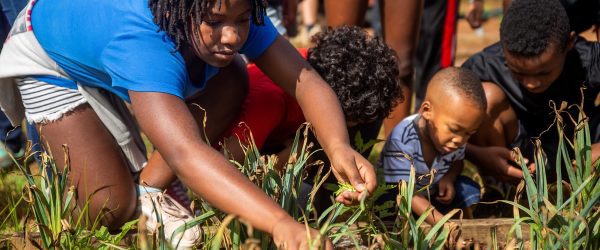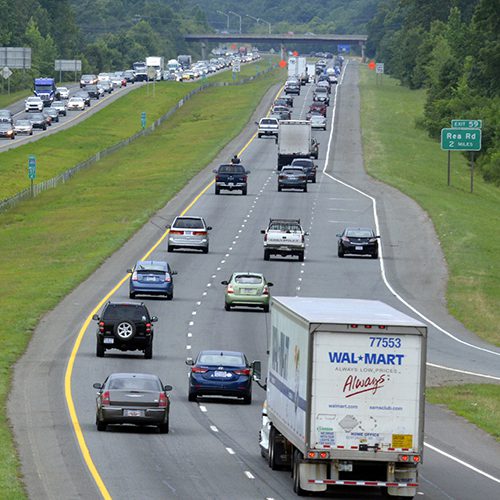Philanthropy: Can charitable giving foster greater regional connection?

On average, individual households in the 32 counties studied as part of the Urban Institute’s Carolinas Urban-Rural Connection Project give nearly $3,200 each to charities every year. That adds up to a regional total of $4.6 billion. If grants and donations from foundations, bequests and corporations are included, the amount rises to $6.75 billion. For comparison, the city of Charlotte’s budget for 2019 is $2.6 billion.
Researchers Christa Wagner Vinson and Brian Dabson discovered it’s not just the amount of money that matters, it’s the regional exchange of ideas about how to put that money to work that seems to make a difference.
Charitable giving is an invisible thread binding people and communities together across the region. Often used as an indicator of civic engagement and well-being, philanthropy is important to community and economic development as it can fill the gaps where government and corporations cannot, show strategies that can work to tackle important issues and provide support for the multitude of nonprofits that are the lifeblood of any community.
Where does the money go?
Nationwide, about one-third of charitable giving is donated for religious purposes. Education, human services and grant-making foundations represent roughly another third of the pie.
About 10 percent of individual giving in the United States is directed to donor-advised funds, 15 percent of which are managed by community foundations.
The Council on Foundations describes community foundations as grantmaking public charities dedicated to improving the lives of people in a defined local geographic area, often a county. They bring together the financial resources of individuals, families and businesses to support the work of nonprofits in their communities.
There are seven community foundations with a footprint in the Carolinas Urban-Rural Connection region with $2.3 billion in endowed assets. The Foundation for the Carolinas (FFTC), headquartered in Charlotte, is by far the largest. FFTC has 13 affiliates, all within the Carolinas Urban-Rural Connection region.
Why do regional connections matter?
While community foundations, by definition, have a local focus, they often join efforts to tackle common challenges that span the region. Despite struggling with the same issues—health and human services, education and the arts represent the most common challenges—each community approaches them differently.
The Foundation for the Carolinas began to build bridges among urban, rural and suburban communities in the central Carolinas well before the region’s explosive growth. Convening as a group of 13 affiliated community foundations multiple times a year since then, local leaders have benefited from an infusion of ideas from FFTC staff, peer organizations and one another.
The outcome allows communities to source ideas that can be put into practice locally in a manner that will address the unique set of challenges facing each community.
Photo: Unity in the Community of the Foothills is a nonprofit organization and a coalition of black churches that are working to improve the quality of life for the citizens of Polk County and the surrounding area by providing activities and services for the entire family.
Related Stories
Finding the music: How one North Carolina city reinvented itself
Commuters: Where they work and how they get there
 Since 1969, the UNC Charlotte Urban Institute has sought nonpartisan solutions to social, economic and environmental challenges facing communities in the Charlotte region through applied research and community outreach.
Since 1969, the UNC Charlotte Urban Institute has sought nonpartisan solutions to social, economic and environmental challenges facing communities in the Charlotte region through applied research and community outreach.
To mark its 50th year, the Urban Institute launches the Schul Forum Series on Nov. 21, which this year highlights findings from the Carolinas Urban-Rural Connections Project, a two-year research endeavor supported by the Duke Endowment aimed at identifying regional connections between urban and rural areas that can be strengthened to increase economic vitality.
As the inaugural forum approaches, Inside UNC Charlotte will share a preview of the project’s themes, outcomes and recommendations.

